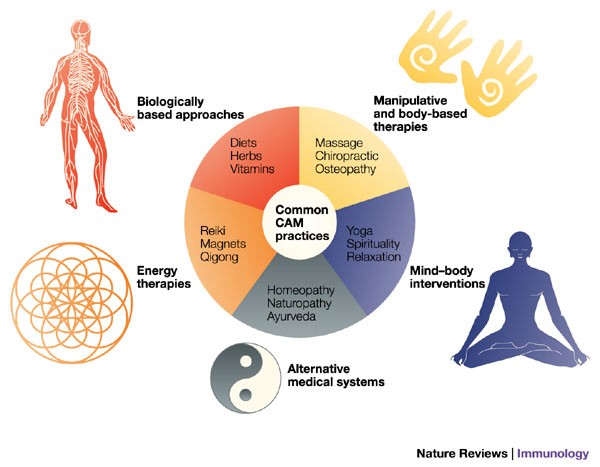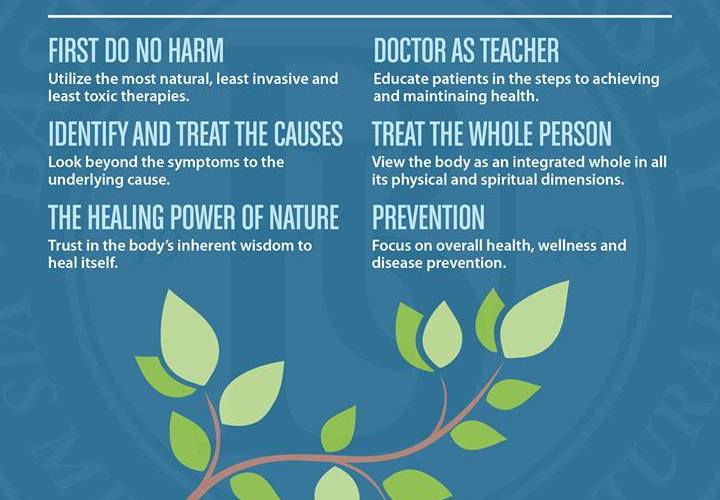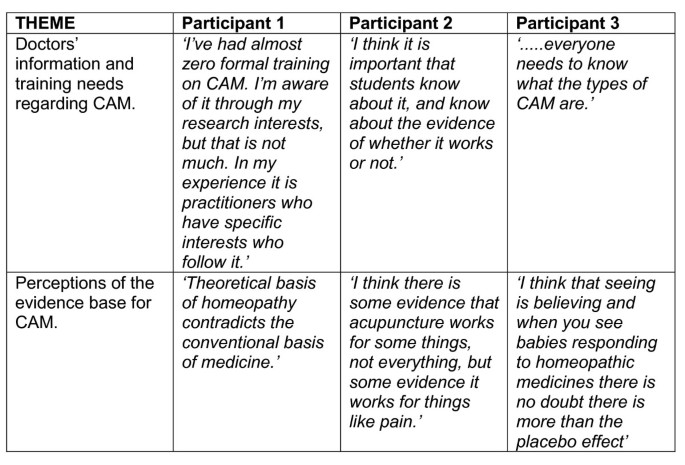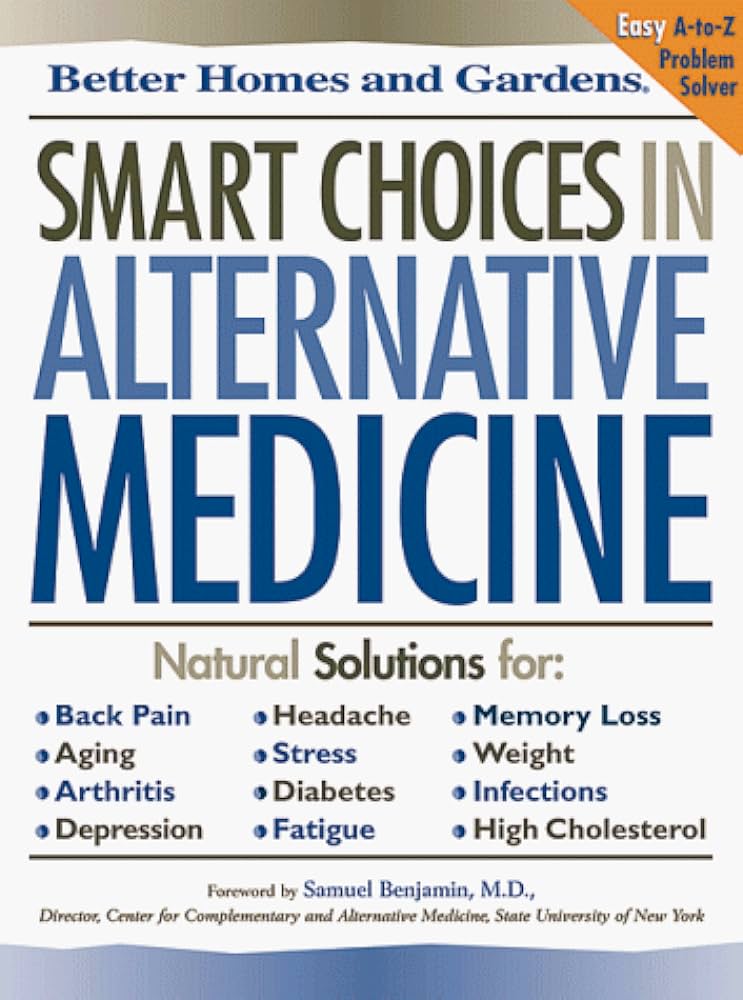
Introduction to Alternative Medicine
Alternative medicine is a term used to describe a range of medical practices and therapies that are not considered part of conventional medicine. These practices often focus on holistic approaches to health and well-being, taking into account the mind, body, and spirit.
Definition and principles of alternative medicine
Alternative medicine encompasses a wide variety of practices, including herbal medicine, acupuncture, chiropractic care, naturopathy, and more. The principles underlying these practices often differ from those of conventional medicine. Here are some key principles of alternative medicine:
- Whole-person approach: Alternative medicine emphasizes treating the whole person rather than just the symptoms. Practitioners believe that physical health is interconnected with emotional, mental, and spiritual well-being.
- Prevention and self-care: Alternative medicine focuses on preventing illness and promoting self-care through lifestyle changes, such as diet and exercise. It encourages individuals to take an active role in their own health and well-being.
- Natural remedies: Alternative medicine often relies on natural remedies, such as herbs, supplements, and dietary changes, to promote healing. These remedies are believed to work in harmony with the body’s natural processes.
- Individualized treatment: Alternative medicine recognizes that each person is unique and may require personalized treatment plans. Practitioners take into account a person’s specific needs, preferences, and circumstances when developing a treatment approach.
- Integration with conventional medicine: While alternative medicine is often used as an alternative to conventional treatments, it can also be used alongside them. Many individuals choose to integrate both approaches to achieve optimal health outcomes.
It’s important to note that alternative medicine should be used in conjunction with the guidance of qualified practitioners and in consultation with your primary healthcare provider.

Acupuncture
Acupuncture is an ancient practice that has gained popularity as an alternative medicine choice in recent years. This traditional Chinese therapy involves the insertion of thin needles into specific points on the body to stimulate healing and balance energy flow. If you’re curious about acupuncture and its benefits, keep reading to learn more.
Benefits and uses of acupuncture therapy
Acupuncture has been used for centuries to treat a wide range of conditions and promote overall well-being. Some of the key benefits and uses of acupuncture include:
- Pain relief: Acupuncture is known to effectively alleviate pain, whether it’s chronic or acute. It can be used to treat headaches, back pain, joint pain, and even menstrual cramps.
- Stress reduction: Acupuncture has a calming effect on the body and can help reduce stress and anxiety. It promotes relaxation and improves overall mental well-being.
- Improved sleep: Many people who struggle with sleep disorders find relief through acupuncture. It can help regulate sleep patterns and improve the quality of sleep.
- Enhanced fertility: Acupuncture has been shown to improve fertility in both men and women. It can increase blood flow to the reproductive organs, balance hormones, and reduce stress levels associated with infertility.
How acupuncture works
Acupuncture works by stimulating specific points on the body, known as acupuncture points or acupoints. These points are believed to be connected by pathways called meridians, through which vital energy or Qi flows. By inserting needles into these acupoints, an acupuncturist aims to restore the balance of Qi and promote healing.
During an acupuncture session, the needles are typically left in place for around 15-30 minutes while the patient relaxes. Some people may experience a mild sensation or tingling at the insertion sites, but acupuncture is generally a painless procedure.
It’s important to note that acupuncture should be performed by a licensed and experienced practitioner to ensure safety and effectiveness.
In conclusion, acupuncture offers a natural and holistic approach to health and wellness. Its benefits range from pain relief to stress reduction and improved fertility. If you’re considering trying acupuncture, consult with a qualified practitioner to discuss your specific needs and goals.

Herbal Medicine
Alternative medicine has gained popularity in recent years as people seek natural remedies for their health concerns. One popular form of alternative medicine is herbal medicine, which utilizes various plants and herbs to promote healing and well-being.
Types of herbs used in herbal medicine
Herbal medicine encompasses a wide range of herbs, each with its own unique properties and uses. Some commonly used herbs in herbal medicine include:
- Ginger: Known for its anti-inflammatory properties, ginger is often used to relieve nausea, improve digestion, and reduce muscle pain.
- Echinacea: This herb is believed to boost the immune system and help prevent and treat the common cold and respiratory infections.
- Lavender: Lavender is known for its calming effects and is often used to promote relaxation, reduce anxiety, and improve sleep quality.
- Ginkgo Biloba: Ginkgo Biloba is commonly used to improve cognitive function, enhance memory, and reduce symptoms of anxiety and depression.
Benefits and potential risks of herbal medicine
Herbal medicine offers several benefits, including:
- Natural healing: Herbal remedies are derived from plants and are considered natural alternatives to conventional medications.
- Reduced side effects: Compared to prescription drugs, herbal medicine often has fewer side effects.
However, it’s important to note that herbal medicine also carries potential risks. Some herbs may interact with certain medications or have adverse effects on certain individuals. It’s crucial to consult with a qualified healthcare professional before incorporating herbal remedies into your healthcare routine.
In conclusion, herbal medicine offers a natural approach to healing and well-being. By understanding the types of herbs used in herbal medicine and being aware of the potential benefits and risks, individuals can make informed decisions about their healthcare choices.

Chiropractic Care
When it comes to alternative medicine choices, chiropractic care is a popular option that many people turn to for relief from various conditions. This non-invasive treatment focuses on the musculoskeletal system, particularly the spine, to promote overall health and well-being.
Overview of chiropractic treatment
Chiropractic treatment involves manual adjustments and manipulations performed by a trained chiropractor. These adjustments aim to restore proper alignment of the spine and other joints in the body. By doing so, it can alleviate pain, improve mobility, and enhance the body’s natural healing abilities.
Chiropractors also take a holistic approach to healthcare, considering the interconnectedness of the body systems. They may recommend lifestyle modifications, exercises, and nutritional advice to complement the treatment and promote long-term wellness.
Conditions that can be treated with chiropractic care
Chiropractic care is known for its effectiveness in treating various conditions, including:
- Back pain: Chiropractic adjustments can provide relief from chronic back pain caused by muscle strains, herniated discs, or poor posture.
- Neck pain: Neck adjustments can help alleviate tension and stiffness in the neck, reducing pain and improving mobility.
- Headaches: Chiropractic care can address underlying musculoskeletal issues that contribute to tension headaches and migraines.
- Joint pain: Chiropractors can target specific joints affected by conditions like arthritis or sports injuries to reduce inflammation and improve joint function.
- Sciatica: Chiropractic adjustments can relieve pressure on the sciatic nerve, reducing pain, numbness, and tingling sensations in the lower back and legs.
It’s important to note that chiropractic care may not be suitable for everyone or every condition. Consulting with a qualified chiropractor is essential to determine if this alternative medicine choice is right for you.

Naturopathy
Principles and practices of naturopathic medicine
Naturopathy is a form of alternative medicine that focuses on the body’s ability to heal itself through natural remedies and therapies. It is based on the belief that the body has an innate ability to maintain and restore health. Naturopathic doctors (NDs) combine traditional healing methods with modern medical science to provide holistic care.
The principles of naturopathic medicine include:
- The healing power of nature: Naturopaths believe in supporting the body’s natural healing processes by identifying and removing obstacles to health.
- Identify and treat the cause: Instead of just treating symptoms, naturopaths aim to find and address the underlying cause of illness.
- Do no harm: Naturopaths use gentle, non-invasive therapies that minimize the risk of harmful side effects.
- Treat the whole person: Naturopaths consider all aspects of a person’s health, including physical, mental, emotional, and spiritual well-being.
Common naturopathic treatments include:
- Herbal medicine: Naturopaths use plant-based remedies to support the body’s healing processes. These may include herbal teas, tinctures, or supplements.
- Nutrition counseling: Naturopaths emphasize the importance of a healthy diet in maintaining optimal health. They provide personalized dietary recommendations and may suggest nutritional supplements if needed.
- Physical therapies: Naturopaths may use various physical therapies such as massage, hydrotherapy, or acupuncture to promote healing and relieve pain.
- Lifestyle counseling: Naturopaths work with patients to identify lifestyle factors that may be contributing to their health concerns. They provide guidance on stress management, exercise, and other lifestyle modifications.
Naturopathy offers a holistic approach to healthcare that focuses on supporting the body’s natural healing abilities. By addressing the root cause of illness and promoting overall well-being, naturopathic treatments can be a valuable complement to conventional medicine.

Homeopathy
Concepts and principles of homeopathy
Homeopathy is a form of alternative medicine that has been practiced for over 200 years. It is based on the principle of “like cures like,” which means that a substance that causes symptoms in a healthy person can be used to treat similar symptoms in a sick person. Homeopathy believes in the body’s ability to heal itself and aims to stimulate this natural healing process.
In homeopathy, each individual is seen as unique, and treatment is tailored to their specific symptoms and overall health. Homeopathic remedies are made from natural substances, such as plants, minerals, or animals, which are diluted and potentized to make them safe and effective. These remedies come in the form of small pellets or liquid drops.
How homeopathic remedies work
Homeopathic remedies work by stimulating the body’s vital force or energy, which is believed to be responsible for maintaining health. By matching the symptoms of the individual to the symptoms that a particular remedy can produce, homeopathy aims to restore balance and promote healing.
Unlike conventional medicine, homeopathic remedies are highly individualized and take into account not only physical symptoms but also emotional and mental aspects. This holistic approach considers the person as a whole and seeks to address the underlying cause of the illness rather than just suppressing the symptoms.
It’s important to note that homeopathy should not replace conventional medical treatment for serious or life-threatening conditions. However, it can be used as a complementary therapy to support overall health and well-being.
In conclusion, homeopathy offers an alternative approach to healthcare that focuses on individualized treatment and stimulating the body’s natural healing abilities. By understanding the concepts and principles behind homeopathy and how remedies work, individuals can make informed choices about their healthcare options.

Ayurveda
Ayurveda is an ancient form of alternative medicine that originated in India thousands of years ago. It is based on the belief that health and wellness depend on a delicate balance between the mind, body, and spirit. Ayurvedic medicine focuses on promoting good health rather than just treating diseases.
Overview of Ayurvedic medicine
Ayurvedic medicine is a holistic approach to healing that takes into account an individual’s unique constitution, known as their dosha. There are three doshas in Ayurveda: Vata, Pitta, and Kapha. Each person has a dominant dosha, and imbalances in these doshas are believed to cause illness.
Ayurvedic practitioners use a combination of herbal remedies, dietary changes, lifestyle modifications, and physical therapies to restore balance and promote well-being. The goal is to address the root cause of the problem rather than just treating the symptoms.
Ayurvedic therapies and treatments
Ayurvedic therapies and treatments are diverse and tailored to each individual’s needs. Some common practices include:
- Herbal remedies: Ayurvedic practitioners use a wide range of herbs and botanicals to treat various ailments. These natural remedies are believed to have healing properties that can restore balance to the body.
- Dietary changes: Ayurveda emphasizes the importance of eating a balanced diet that is suited to your dosha. This may involve avoiding certain foods or incorporating specific herbs and spices into your meals.
- Yoga and meditation: Ayurveda recognizes the mind-body connection and promotes practices such as yoga and meditation to promote relaxation, reduce stress, and improve overall well-being.
- Ayurvedic massage: This form of massage uses specific techniques and herbal oils to stimulate circulation, release toxins, and promote relaxation.
Ayurveda offers a holistic approach to health and wellness, focusing on the individual as a whole. It can be a valuable alternative medicine choice for those seeking natural and personalized treatments.

Traditional Chinese Medicine
Traditional Chinese Medicine principles and approaches
Traditional Chinese Medicine (TCM) is a holistic approach to healthcare that has been practiced for thousands of years. It is based on the belief that the body’s vital energy, known as Qi, flows through channels called meridians. When the flow of Qi is disrupted, it can lead to illness and disease. TCM aims to restore balance and harmony to the body by addressing the root cause of the imbalance.
TCM practitioners use various diagnostic techniques, including pulse and tongue diagnosis, to assess a person’s overall health. Treatment methods in TCM may include acupuncture, herbal medicine, dietary therapy, and mind-body practices such as tai chi or qigong.
Common therapies used in Traditional Chinese Medicine
- Acupuncture: This therapy involves inserting thin needles into specific points on the body to stimulate the flow of Qi and restore balance. It is commonly used for pain management, stress reduction, and improving overall well-being.
- Herbal medicine: TCM utilizes a wide range of herbs and plant-based remedies to address various health conditions. Herbal formulas are customized based on an individual’s specific needs and may be prescribed in the form of teas, powders, or pills.
- Dietary therapy: TCM emphasizes the importance of proper nutrition in maintaining good health. Certain foods are believed to have specific energetic properties that can support or restore balance in the body. TCM practitioners may recommend specific dietary changes or restrictions based on an individual’s condition.
- Mind-body practices: Practices such as tai chi and qigong combine gentle movements, meditation, and breath control to promote relaxation, improve circulation, and enhance overall vitality.
It’s important to consult with a qualified TCM practitioner to determine the most appropriate therapies for your specific health needs. TCM can be used as a complementary approach alongside conventional medicine to support overall well-being.

Conclusion
When it comes to alternative medicine choices, there are a variety of options available to individuals seeking a more holistic approach to their health and well-being. It is important to remember that alternative medicine should not replace traditional medical treatments, but rather be used as a complementary therapy. By considering the different alternative medicine choices and taking certain considerations into account, individuals can make informed decisions about their healthcare journey.
Comparing different alternative medicine choices
- Acupuncture: This ancient Chinese practice involves inserting thin needles into specific points on the body to promote healing and balance.
- Herbal Medicine: Using plants and plant extracts for medicinal purposes, herbal medicine can address a wide range of health concerns.
- Naturopathy: Naturopathic medicine focuses on supporting the body’s natural healing abilities through lifestyle changes, nutrition, and natural therapies.
- Chiropractic Care: Chiropractors use manual adjustments to align the spine and improve overall health by addressing musculoskeletal issues.
Considerations when choosing alternative medicine treatments
- Evidence-based research: Look for alternative medicine treatments that have been studied and supported by scientific evidence.
- Consultation with healthcare professionals: It is important to discuss any alternative medicine treatments with your primary healthcare provider to ensure they are safe and suitable for your specific needs.
- Personal preferences and beliefs: Consider what aligns with your values and beliefs when choosing alternative medicine treatments.
- Credentials and qualifications: Research the credentials and qualifications of practitioners offering alternative medicine treatments to ensure they are properly trained and licensed.
By considering these factors, individuals can make informed decisions about their alternative medicine choices and find the best approach to support their overall health and well-being.








